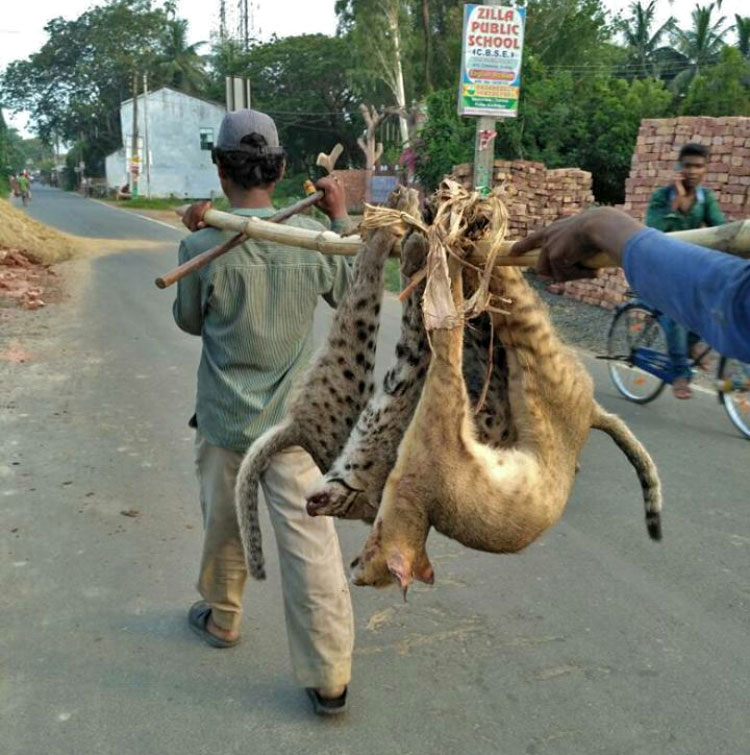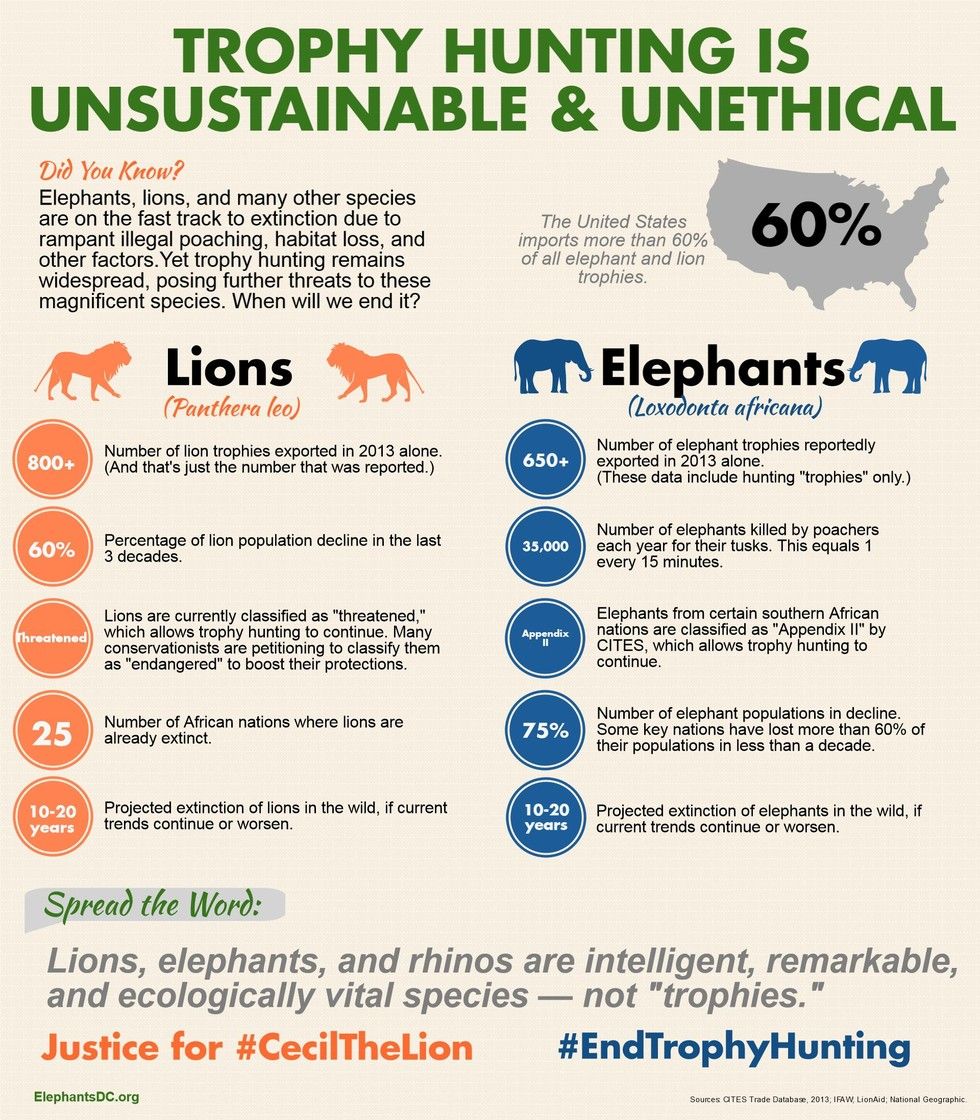Trophy Hunting; a different practice and a subject of intense debate involving the pursuit and killing of wild animals for recreational purposes, with primary motivation being the acquisition of a trophy – either the body or part or another physical remnant – as a symbol of success or achievement.
While its proponents argue that it contributes to conversation efforts through financial support and local community development, the practice raises significant ethical concerns and ecological consequences.
Multiple questions continue to persist and add to the dilemma. For instance, if trophy hunting contributes to conservation efforts, then why are animals hunted in prohibited areas for hunting?
What is Trophy Hunting?
Hunting as a practice has been a significant part of human history, from being a survival need in the hunter’s & gatherer’s societies to the sport reserved only for the elite and royalty.
Likewise, the trophy-hunting game is a unique form of hunting, wherein the hunter is allowed to collect a body part of the animal as a trophy. It is legal in certain jurisdictions of the world.
According to the definition of the Conference of Parties of the Convention for the International Trade of Endangered Species (CITES), “it generally involves payment of a fee by a foreigner or local hunter for a hunting experience, usually guided, for one or more individuals of a particular species with specific desired characteristics (such as large size or antlers).”
“The trophy is usually retained by the hunter and taken home.”
Claims of economic consideration for Conservation
As the definition demonstrates, trophy hunters themselves pay huge amounts to do what they do. Apart from the sum of money, it generates revenue in the form of tourism yet reliable data on the economic benefits this practice brings to the countries remained contested.
Advocates argue that trophy hunting contributes to conservation efforts by generating funds for re-investing in wildlife management and local communities. Often in countries struggling with poverty, this game is seen as an opportunity for funds and employment.
Nevertheless, as several studies have demonstrated, barely 3 percent of the total money made from the trophy hunting game goes to the local communities.
Furthermore, critics assert that the ethical implications and ecological consequences undermine the claim of conservation.
The claim and idea that ‘well-managed’ trophy hunting is an effective tool for conservation, reap greater rewards for indigenous communities.
By and large, it remains ambiguous exactly in what circumstances trophy hunting can prove to be a prominent tool for conservation. Assuming that the scheme works in one region or country and on one species, making it applicable for all universally resembles a one-size-fits-all approach.
Far from pragmatism, it does take multiple variables like what kind of species, region, climate etc. into consideration.
Ethical concerns
The mere reason, the result has the potential to protrude social good, does not make the journey or the approach ethical. The whole debate that whether or not monetary value can be placed on life or not stirs the dilemma around trophy hunting.
Strictly speaking from the Consequentialist lens which suggests that the ‘end justifies the means,’ so to say that the emphasis is comparatively more on assessing the benefits rather than examining the potential risks like threat to endangered species and ecosystems.
While critics shed light on the ethical concerns from a deontological lens, suggest that even if we do have empirical evidence which suffices the economic benefits claim, then inflicting suffering and death on individual animals to save the species is no good.
Alternative Conservation Approaches
Are we as a highly developed society okay with an approach of conservation that jeopardizes the rights of a living being? Isn’t it paradoxical to vouch for environmental rights on one hand and mint money through the exploitation of the same?
Or we are ready to enhance the efficacy of alternative conservation approaches, for example, photographic tourism and non-consumptive wildlife use and community-centric projects vis-à-vis reducing animal-human conflict.
As far as economic benefits are concerned, a balanced approach is much required which oscillates between generating funds sustainably and zero exploitation of animals.




What a confused article. More than 50% of lions are killed by other lions. Lions are running out of space as the population of Africa expands. More Africans = more cattle -= less room for lions, so lions kill cattle and are killed in turn. In South Africa, 98% of hunted lions are raised on farms for hunting. Only a few wild lions are hunted and they are old, reserve escapees or cattle killers. It does not contribute to lion extinction – it protects the wild lions.
Elephants are not evenly distributed. There are none in some places (killed by poachers, not trophy hunters) but there are 100,000 too many across the southern range states (measured by the damage they do), increasing by 5% or 6% per year. 650 legal trophies don’t make any difference to the numbers, but do supply jobs, income and a lot of meat to locals. There is no chance they will become extinct in 20 years. None.
All forms of tourism pay little to locals, not just trophy hunting. Mass eco-tourism also does huge damage to the environment, has a huge carbon footprint and consumes vast quantities of precious water.
These are all facts. Dreaming about Nature and wild animals won’t save them.